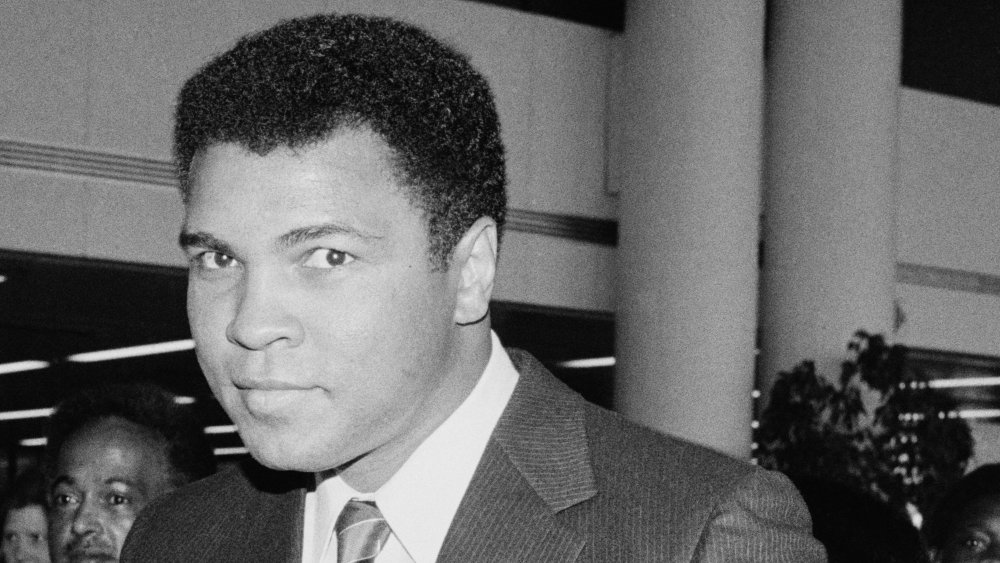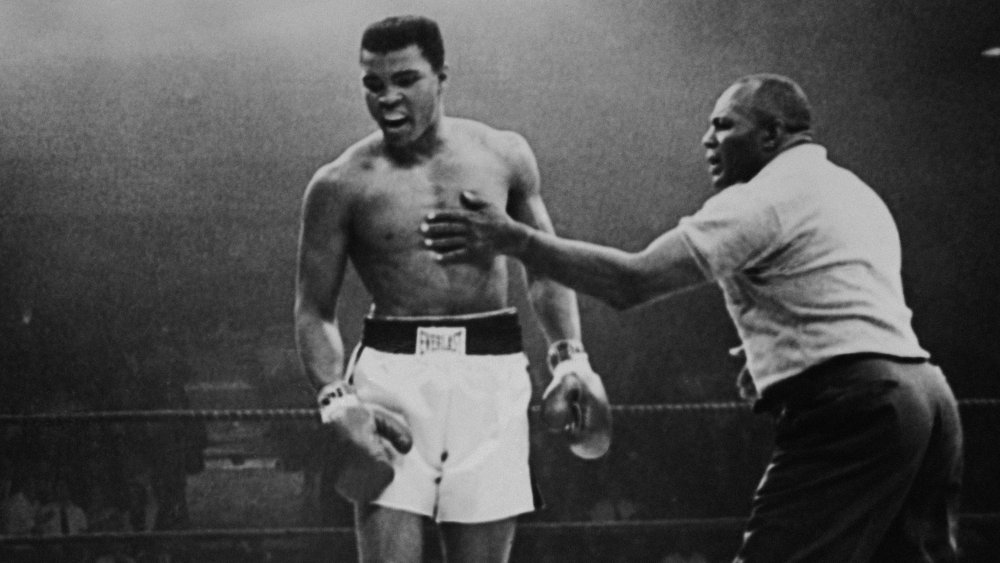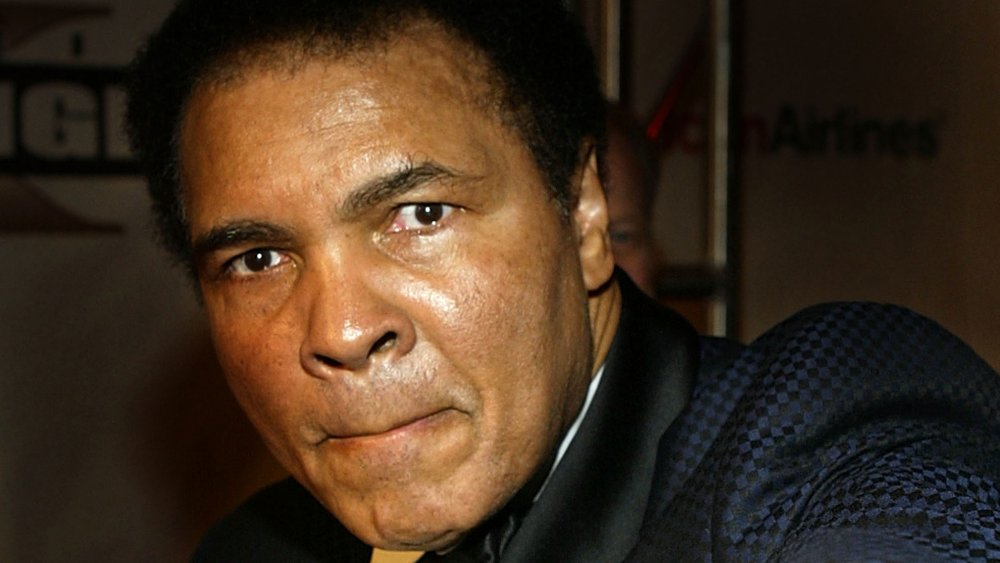The Real Reason Muhammad Ali Refused To Fight In The Vietnam War
Muhammad Ali is arguably the world's most famous boxer, but for years, he was denied the right to fight and stripped of his titles. The reason? He refused to fight in the Vietnam War due to his beliefs.
Born Cassius Clay before converting to Islam, Ali was drafted to fight in the Vietnam War. On April 28, 1967, while staying in Houston, he was told to report to an Army induction office, according to the Atlantic. The inducting officer called his name repeatedly, but Ali did not step forward, stating:
"My conscience won't let me go shoot my brother, or some darker people, or some poor hungry people in the mud for big powerful America," Ali told reporters in 1967. "And shoot them for what? They never called me n*gger, they never lynched me, they didn't put no dogs on me, they didn't rob me of my nationality, rape and kill my mother and father ... Shoot them for what? How can I shoot them poor people? Just take me to jail."
According to the New York Times, Ali had taken an exam to get drafted into the army at age 18 but scored poorly, meaning he was eligible to be drafted only in times of war or national emergencies. But then-President Lyndon B. Johnson expanded military operations in Vietnam so the army lowered requirements to be drafted. Ali, who was sure he wasn't going to be drafted, was called up for service. He refused on grounds of religion and was arrested then convicted. He avoided jail time while his case was being tried, but the damage was done.
The backlash
His comments were not taken lightly. The war was popular at that time and the public did not appreciate his words. Public figures derided him on national television with some calling for him to be jailed. Even Jackie Robinson, the first African-American to play in Major League Baseball and a former military officer, was critical of Ali, saying his refusal hurt the morale of young African-American soldiers in Vietnam.
Ali lost his boxing licenses and was stripped of his titles, and was unable to participate in fights for three years. His trainer Angelo Dundee told ESPN this cost him his best, prime fighting years.
"Due to his beliefs, he was robbed of the best years of his life — that's a subject that we must not forget, ever," Dundee said. "Clay was speed, harmony in motion, an extraordinary sight to see. It seemed impossible to hit him. Ali, the guy that came back after his inactivity, was more flat-footed; he had to go in and fight and take more punishment."
In the meantime, Ali visited college campuses where anti-Vietnam War sentiments were growing. It was not until 1971 that the US Supreme Court overturned Ali's conviction and he was able to regain his boxing license.
Ali was The Greatest
Despite his trainers' concerns, Ali went on to win several more titles once he could box again.
The year his case was overturned, he fought heavyweight champion Joe Frazier in the "Fight of the Century" at Madison Square Garden. Frazier won that fight but the two went head to head again in "Super Fight II" in 1974 and "Thrilla in Manila" in 1975. The fight in Manila, Philippines brought Ali more international acclaim — to the point that the country's first major mall was named in his honor, per the San Diego Tribune.
Ali died on June 3, 2006, after years of fighting Parkinson's Disease. At the time of his death, he was known as The Greatest not only for his boxing ability, but also for his humanity.


